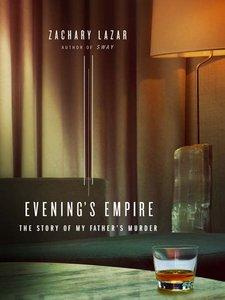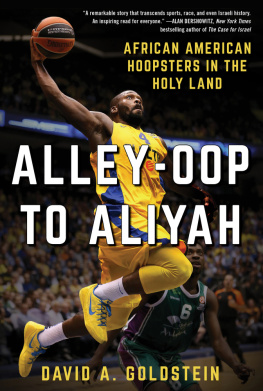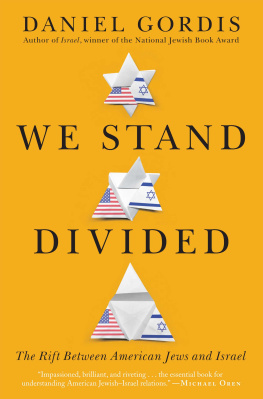Zachary Lazar
I Pity the Poor Immigrant
To Bill Clegg and Pat Strachan
Im not a kneeling Jew who comes to sing songs in your ears.
Meyer Lansky to Senator Estes Kefauver, 1950
1 Checking Out NEW YORK, 2012
I remember taking my father to lunch at an Italian restaurant on 76th Street a few years ago, after my first book, a memoir of my brief marriage, had come out. It was October, and a waiter circulated among the tables with a plate of white truffles beneath a tiny bell jar so that when he lifted it you could take in the aroma before he shaved the truffles over small plates of risotto in black squid ink. Eighty dollars each, those small plates. I can recollect the pungent taste, the Sangiovese in our glasses. It was a daughters gesture of affection or self-aggrandizement these things were always murky between my father and me.
You remember things, my father said. I have the opposite problem. I live in the present too much.
Its been almost a year now since my father and I last saw each other. I should tell you that this is a recurring pattern in the story Im about to tell fathers and their children drifting apart, losing contact. Perhaps losing contact with my father was some unconscious fear or goal on my part when I flew to Israel for the first time in the spring of 2009 to investigate the murder of an Israeli writer named David Bellen. I went to cover Bellens murder, but after my return I learned that the story led elsewhere. It led to a woman from my fathers past named Gila Konig, who was born Tsilya Konig somewhere in Hungary, and who when I saw her briefly gave me her part of this story. Not that what she gave me was sufficient, only tantalizing. Gila Konig, like David Bellen, once lived in Tel Aviv. She is also now dead. My father isnt speaking to me anymore. These are some of the limitations of my sources for this new book.
Before his death, David Bellen said: We dont choose our obsessions our obsessions, invariably against our deepest wishes, choose us. Against our deepest wishes, we become suddenly, inexplicably, committed to a path we had avoided, a line of thought wed had no interest in.
I once said in an interview: What we need is a memoir without a self. A memoir about somebody other than me. An understanding that the story of other people connected to me might communicate more than the usual me, might show the cultural context of me, might even cast doubt on the viability of me.
I said this in the aftermath of a book scandal, another memoirist caught embellishing his or her true story, telling lies. Im quoting myself here with the same detachment with which I just quoted the writer David Bellen, who is one of the figures in what follows, this odd new memoir about people mainly other than me. I dont know if any of this will make sense. What I mean is that the people in this story have become my story, or I have become their story. They are my proxies I am imagining them as I imagine myself, both from a distance and from the inside. In writing this book, I have come to feel like a kind of immigrant in my own life, inhabiting a world of reflections and images of people I cant fully know, some of whom are dead, and I see now that my life has been shaped by this network, in ways I didnt always perceive.
A woman, Hannah Groff, goes on a journey. Shes close to forty, divorced, without children, not unhappy but not what anyone would call settled, a person in transit, on her way from New York to Tel Aviv to cover a murder. The journey starts with a crime and the crime ramifies, the woman finds she has dishonored people without quite intending to, including her father, who knew Gila Konig, who knew David Bellen, who wrote a book called Kid Bethlehem in which the biblical King David is presented in the guise of a twentieth-century gangster.
Gangsters are in this story too. They too are a part of who Ive become.
Part One Everywhere Present but Never Seen
2 Displaced Persons TEL AVIV, 1972
Gila Konig looked at the photographs in the newspaper and tried to connect them to the man shed been secretly meeting this past year, but the pictures came from a different order of reality. They were separate from what she knew about him what she thought she knew about him. His essential self was like his body, which you could only take in one aspect at a time the belly, the slick gray hair, the small dark pupils of his eyes.
The photographs were in black and white they were almost kitsch, they were so old and it required an effort of imagination to see the violence in them as truly real. In one, a man was slumped over on a floral print sofa in Beverly Hills. One of his eyes had been shot out, his face a clown mask of gore. The blood blended with the darkness of his necktie to cover half his chest in a dark stain. He had been one of her lovers oldest and closest friends, Benjamin SiegelBugsy, the captions always called him. The nickname served to cheapen his murder into something picaresque and quaint.
The next picture was also an antique fifteen years ago, 1957. In this one, there was little visible blood, just the body of a man flat on his back on a hairdressers floor. His name was Albert Anastasia. He lay there in a near-cruciform position between two barbers chairs, his legs draped by a sheet and his head, shoulders, and arms by another sheet, or maybe they were towels. The only things exposed were an armpit, a chest covered in hair, a nipple, an outstretched hand.
The photos and the words were sensational that is, they managed to paradoxically both magnify and diminish their subjects. The Meyer she knew was calm, not friendly, fastidiously clean, strategic. There was a reason, she thought, that his body had never turned up in a tabloid newspaper photograph.

On the ride into Tel Aviv, he noticed that the sidewalks were full of people looking up at the sky. His driver came off Kings of Israel Square the city hall like an assemblage of cheap building blocks, pigeons in the big asphalt emptiness and suddenly everything was cast in shadow. Outside the cafs, waiters stood at the edges of mostly empty tables, arms crossed over their pressed shirts. Right on Frishman, past Dizengoff, Ben Yehuda juice stands, falafel, laundromats then farther toward the beach, where the concierges had come out of the hotels, peering and twisting, finding it. Crowds of people silently looking up at the sky, not looking at the car, not looking at him. They turned to each other over their shoulders, then went back to watching what was above, then slowly resumed their courses, heads still raised. There was no way to see from the car what they were looking at.
Whats happening? Lansky finally asked the driver.
I dont know, the driver said. There must be an eclipse. Something like that.
He spoke fluent English, though with an Israeli accent that at times sounded oddly German.
I read the paper this morning, Lansky said. There was nothing about an eclipse.
Clouds maybe.
Maybe a patch of clouds. Not an eclipse.
A crowd of men in suits stood outside the lobby doors, the driveway two lanes thick with black cars. Everyone kept looking at the sky. Lansky waited in the backseat while the driver went in to clear his way. He saw his bag sitting in the sun on the bellmans cart. The driver returned and he got out of the car, and he and the driver walked past the doorman into the brown lobby. The driver nodded as Lansky got into the elevator by himself and the doors closed.
Gila was sitting in a chair, smoking, still in her uniform, slumped like a child in the beige blouse and black skirt, black nylons. Instead of looking at him, she closed her eyes and exhaled.











